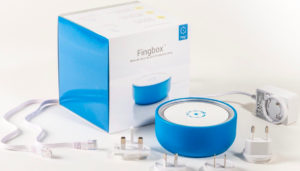CEO Paul Lipman talks exclusively about how consumer security company BullGuard is shaking up the IoT market.
 BullGuard appears to be undergoing a renaissance after being around for a while. Why the sudden surge?
BullGuard appears to be undergoing a renaissance after being around for a while. Why the sudden surge?
BullGuard’s promise to our customers is ‘we keep you safe and we keep it simple’. This promise of providing the very best, easiest to use, security products to our customers is what has made us the #1 rated consumer security company in Europe. On the back of this product strength we are rapidly expanding into new markets around the world, including India, Latin America and the Middle East.
However, our vision for keeping our customers secure is much broader than just Anti-Virus. An AV product was perfectly OK in the days when the only connected devices we had in the home were PCs. However, the devices in our homes are proliferating both in number and form such as smart TVs, internet-enabled surveillance cameras, door locks, garage door openers… the list goes on.
Traditional Anti-Virus solutions can’t protect these devices. Today’s connected home needs enterprise-grade network security to protect against the very real attacks that threaten IoT devices. This is a major transition point for the industry, and BullGuard is at the forefront of this new wave of innovation.
You recently made an interesting acquisition in Israel. What is the strategy behind this?
More than four billion consumer non-PC devices are connected to the internet and this number is growing exponentially. Until now, the security and privacy of these devices has been essentially non-existent, leaving our most precious data and possessions exposed.
That’s why we bought Dojo-Labs. BullGuard and Dojo share a common vision for solving this critical market problem, and for delivering the products our customers need to keep them safe. Dojo has developed a world-class intelligent security device that connects to the home network and acts as the essential layer between connected devices and any threats to their security or privacy. Their team comprises of cybersecurity experts with the highest level of hacking and security-related big data analytics experience.
Why are you focusing on IoT?
Successful hacks against IoT devices are in the news literally every day. The problem is real, significant and growing. Nobody is solving this problem today. BullGuard has the technology, channels and capital to lead this new market.
Isn’t IoT just another hyped-up buzzword?
Absolutely not. IoT is a huge tech trend that will transform consumers’ lives. However, the security aspect is a nightmare. It’s poorly thought out and loosely implemented, if at all. It’s probably the major impediment to growth of this industry.
BullGuard is intently focused on solving this problem. We launched the world’s first IoT scanner, and after the Dojo-Labs acquisition we will be at the forefront of the next wave of consumer security services and innovation.
What is the problem BullGuard is solving?
Our homes contain our most precious possessions and intimate data The promise of Smart homes can only be truly realised once this security problem has been solved. We like to call it SoT, the Security of Things.
How many customers and partners do you have?
We have millions of consumer customers around the world. Our products are sold by more than 2,500 partners in North America, Europe, the Middle East, Asia and Australia.
How big is the market?
The consumer security market is worth more than $8 billion. The IoT security market is at least another $7.5 billion today (comprising both consumer and enterprise markets).
How much have you raised in funding to date?
$20 million
Where is the BullGuard team based?
The team is located in Silicon Valley, London, Bucharest and Herzliya.
What are the challenges with separate teams in four locations?
On the contrary, BullGuard’s office locations provide us with some important advantages. Being a globally distributed company not only enables us to serve customers and partners wherever they are around the world, but lets us tap into the varied and deep talent pools that each region provides. Our main office is located in Bucharest, where we have close ties to the major technical universities and the city’s broad base of software development and anti-virus talent.
We recently opened an office in Silicon Valley and now, with the acquisition of Dojo-Labs, we get to tap into Israel’s renowned cyber security expertise. Simply put, uniquely positioned in terms of talent and market access.




